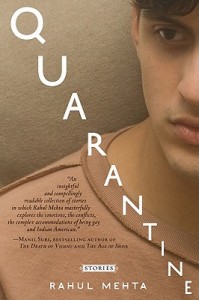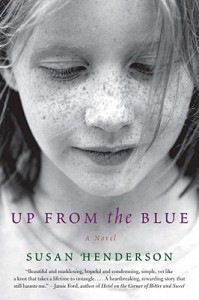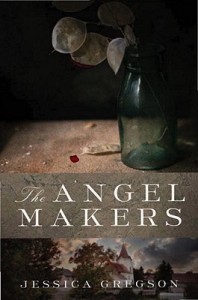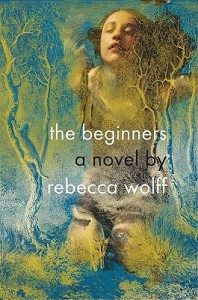You’ve probably read about Amazon’s most recent promotion–they encouraged customers to use their price-check app in stores, scan an item, and then get an extra 5% discount for buying that item on Amazon instead. This promotion occasioned much ranting, including a piece by Richard Russo in the Times, and then a rant from an opposing perspective by Farhad Manjoo in Slate.
 It won’t surprise regular readers of this site, which routinely suggests buying from independent bookstores and which links to Powell’s most often, rather than Amazon (though we get no kickback from Powell’s, we just like them), to learn that I agree more with Russo than with Manjoo. But I found them both ranty, and therefore not the most useful frame for this debate, not only because they’re not really listening to or considering this situation–they’re just responding–but also because they pose the choice as an either/or. Either never buy from Amazon because if you do you’re a heartless capitalist who is destroying “real-life” literary culture, or always buy from Amazon because it’s more “efficient” and authors need lots of people to buy lots of books. Both positions seem really out of touch.
It won’t surprise regular readers of this site, which routinely suggests buying from independent bookstores and which links to Powell’s most often, rather than Amazon (though we get no kickback from Powell’s, we just like them), to learn that I agree more with Russo than with Manjoo. But I found them both ranty, and therefore not the most useful frame for this debate, not only because they’re not really listening to or considering this situation–they’re just responding–but also because they pose the choice as an either/or. Either never buy from Amazon because if you do you’re a heartless capitalist who is destroying “real-life” literary culture, or always buy from Amazon because it’s more “efficient” and authors need lots of people to buy lots of books. Both positions seem really out of touch.
What is “real-life” literary culture? Digital life is real life for lots of people, in lots of meaningful and important ways. There is no bookstore, independent or otherwise, in my neighborhood, or anywhere close to it. This is true for the vast majority of Americans. I engage, instead, in the literary culture found on this site, and on Goodreads, and countless other online venues. Russo also doesn’t consider the enormous boost that good Amazon reviews can give a first-time author. In his piece he asks people like Ann Patchett and Anita Shreve for their opinions on Amazon, and they are dutifully castigating. But Anita Shreve doesn’t have to worry about how her next book is going to sell, on Amazon or otherwise–she’s going to do just fine. I’d much rather hear from emerging writers, people for whom Amazon pre-orders dictate print runs. Their relationship with this dilemma must be much more complex.
 Meanwhile, Manjoo’s argument that small bookstores are “inefficient” is as reductive as it is insulting. Buying a book is an act of intellectual and often emotional engagement that cannot be measured merely by the book’s purchase price. To point out, as he does with complete and completely annoying arrogance, that one can buy two books for the price of one on Amazon misses all of Russo’s points, and is unapologetically (and therefore very stupidly) a purely capitalist argument. Haven’t we learned where pure capitalism gets us? He also writes, “Amazon suggests books based on others you’ve read; your local store recommends what the employees like. If you don’t choose your movies based on what the guy at the box office recommends, why would you choose your books that way?” This is, to borrow Manjoo’s opening, totally boneheaded. Why wouldn’t you choose a movie based on what the guy at the box office recommends? He’s probably seen a thousand more movies than you, and he wants you to come back to his movie theater–he’s not going to recommend Saw XV when he knows you came in for tickets to Paris Je T’Aime the week before.
Meanwhile, Manjoo’s argument that small bookstores are “inefficient” is as reductive as it is insulting. Buying a book is an act of intellectual and often emotional engagement that cannot be measured merely by the book’s purchase price. To point out, as he does with complete and completely annoying arrogance, that one can buy two books for the price of one on Amazon misses all of Russo’s points, and is unapologetically (and therefore very stupidly) a purely capitalist argument. Haven’t we learned where pure capitalism gets us? He also writes, “Amazon suggests books based on others you’ve read; your local store recommends what the employees like. If you don’t choose your movies based on what the guy at the box office recommends, why would you choose your books that way?” This is, to borrow Manjoo’s opening, totally boneheaded. Why wouldn’t you choose a movie based on what the guy at the box office recommends? He’s probably seen a thousand more movies than you, and he wants you to come back to his movie theater–he’s not going to recommend Saw XV when he knows you came in for tickets to Paris Je T’Aime the week before.
I could go on and counter lots of points made by both authors (and almost all of Manjoo’s, some of which are truly absurd–Amazon’s recommendations are often shitty; I have never had a “frustrating” experience shopping in an independent bookstore) but instead what I want to say is this: let’s all buy lots of books from lots of different retailers. Independent bookstores have their issues–I can’t always afford to shop at them, for one, though I do my best–and Amazon isn’t the devil incarnate, or rather, not incarnate. Their recent promotional move, because it’s occasioned such a backlash, and because it’s a slimy thing to do generally, certainly seems boneheaded, but they’ve also done a lot of good for book sales. Book sales, however, are not the bottom line. There is no bottom line here, and that’s what writers of complex fiction and poetry ought to recognize, and be talking about. Because continuing to have that conversation, which is more than a rant, is the only way we’re only going to save independent bookstores AND make books available to the masses as well.
(I’ve illustrated this post with four recent titles by emerging writers we’ve recently reviewed. The covers are linked to four different retailers, including Amazon. ‘Tis the season. Go forth, savvy book-buyers, and enjoy.)







